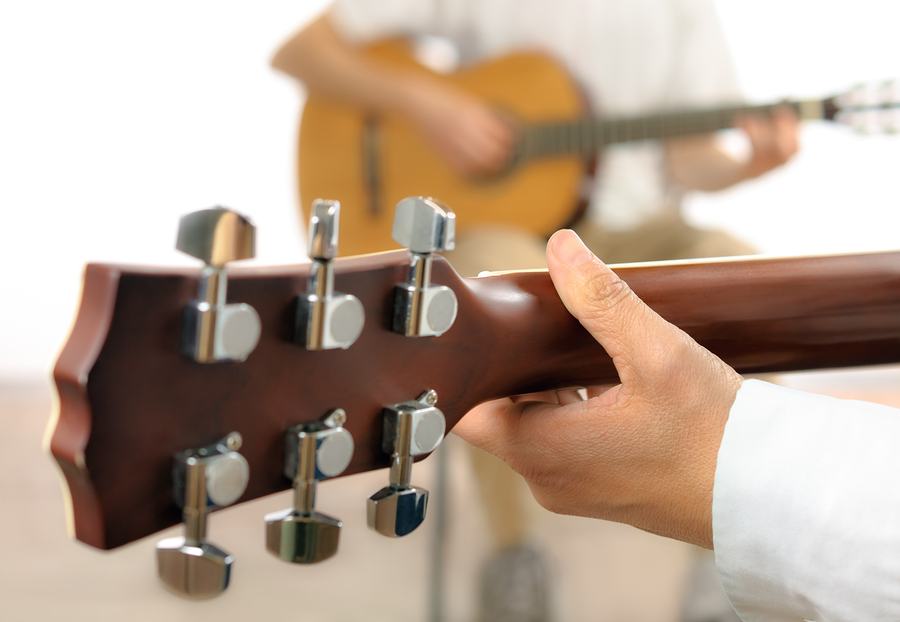
Photo by Bigstock photo
You want to learn to play guitar but you’re having trouble finding which way to go next. Well, don’t worry, today we have a roadmap or beginners path to learning guitar that will show you where to start and how to continue on your journey.
The learning path to guitar playing will not be the same for everyone. It depends on what style or genre you want to learn and your ultimate goal.
Do you want to become a shredding guitar virtuoso or are you more a singer songwriter type? Do you want to become a solid blues guitar lead player or work your way to an acoustic fingerstyle wizz or a hybrid picking country cowboy?
Whatever your choice is, if you want to start learning popular music, folk music and work your way towards blues, rock, alternative, metal, country or jazz this beginners path is a good starting point.
You don’t necessarily have to stick to the order of this list, there is more than one way to skin a cat. There are always side roads and other things you can learn besides this list. But this beginners path is a good indication to create the solid building blocks you need to becoming a pretty decent guitar player.
Somewhere down to road you got to choose which way to go next, but you’ll figure out when the time is right.
Notes:
– If you want to learn to play classical guitar this is probably not the beginners path you want to follow.
– Take your time. Learn each aspect thoroughly. Even though learning basic chords and an easy song can be mastered in days, this path is not a plan for days or weeks but more for months, years and even a lifetime.
Don’t forget: “It’s about the journey, not about the destination.”
Continue Reading